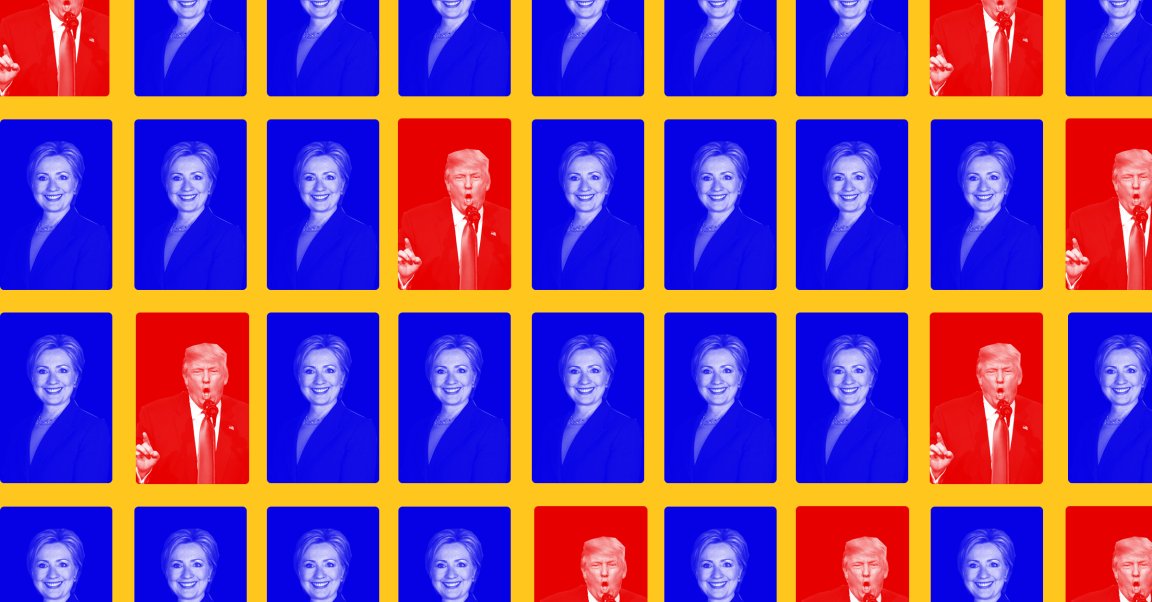
Ten. That’s how many times the names “Diamond and Silk” came up during Mark Zuckerberg’s testimony to Congress this week.
Lawmakers seemed to really want to know what Facebook’s CEO specifically thought was so wrong with a pro-Trump online talk show run by South Carolinian sisters Lynette “Diamond” Hardaway and Rochelle “Silk” Richardson (the sisters claim Facebook shut down their show because it was “unsafe to the community,” which a Facebook spokesperson called the accusation “inaccurate“).
But the subtext of their questioning was a rumor that’s floated in the ether for years:
Facebook is biased, specifically against conservative and religious viewpoints.

This was far from the first time Facebook faced accusations of bias, though.
In 2016, former Facebook “news curators” told Gizmodo that curators of Facebook’s “Trending” feature suppressed stories that might have appealed to conservative readers.
Over the years, the stories and pages reportedly censored by Facebook have included:
- The Chick-fil-A Appreciation Day page
- More than 20 pages for Catholic churches
- Posts about or by Republican politicians
- Posts criticizing then-President Barrack Obama
- A Catholic theology degree ad (Facebook admits this one was a mistake)
Zuckerberg vehemently denied these claims. Following Gizmodo’s 2016 story, Zuckerberg posted: “We have rigorous guidelines that do not permit the prioritization of one viewpoint over another or the suppression of political perspectives…We have found no evidence that this [Gizmodo] report is true.”
And that’s the crux of the issue. Lots of people say Facebook is biased, but evidence is hard to come by. Facebook’s algorithms are complex, and every user’s Newsfeed shows something a little different. So there’s pretty much no way the average person can tell if the company is prioritizing one kind of post over another.

In front of Congress this week, Zuckerberg denied that Facebook is biased, as he did in 2016. But, legally, it could be. The First Amendment protects Americans’ right to hold whatever beliefs they want so long as they don’t infringe upon the rights of others. New organizations have the same right. In fact, research shows that the majority of news organizations lean at least a little to the left or right, and from a legal perspective, that’s totally fine.
Also in the Bill of Rights: Americans have the right of freedom of association. But what exactly that means is a little less cut and dry. It’s where we run up against questions that have to be decided in court, like: Can a country club ban people of a certain race? No. Can the Boy Scouts ban gay troop leaders? Nope.
Could Facebook outright ban Republicans from using the platform? If it wanted to, sure. Political affiliation isn’t protected under anti-discrimination laws.
So Facebook has every legal right to be biased. If it is, then, why not admit it?

So that leads to the inevitable question at the heart of this week’s hearings: what exactly is Facebook? Ask Zuckerberg (as lawmakers did during the hearing), and Facebook’s “a tech company.” With few exceptions, Facebook doesn’t produce content. It merely gives others (more than 2 billion others) a platform to share their own content.
If, at its core, Facebook is a company, as Zuckerberg asserts, his top concern is (or should be) the bottom line. Without profits, companies fail. Facebook profits from its users, and the advertisers who target them (Facebook generated $27 billion in ad revenue in 2016, and ad sales account for the majority of Facebook’s income).
If Facebook did come out as a biased platform that attempts to silence conservative or religious voices, it could lose users. More importantly for the company’s future, it could lose advertisers who fear they can no longer reach such a broad swath of potential customers.
In other words: No advertisers, no Facebook (or no Facebook as we know it, at least).
So, “Diamond and Silk” may have come up 10 times during the hearing, but another phrase wasn’t too far behind it: “Facebook is a platform for all ideas.”
Whether or not Facebook is biased is up for debate. But to keep the business afloat, Zuckerberg is saying exactly what he’s got to say.